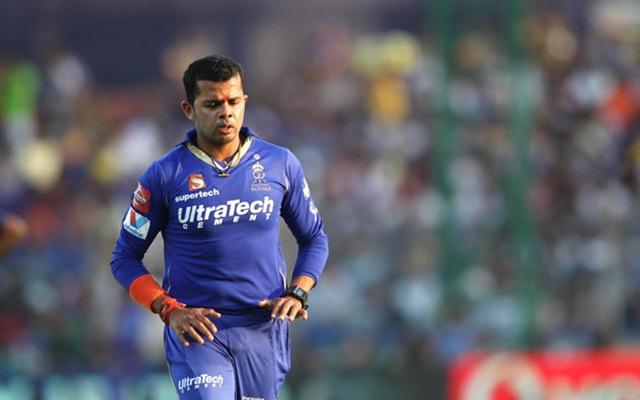'Unfortunately, there is no law in India to deal with corruption in cricket' - Ex-Delhi CP Neeraj Kumar on S Sreesanth avoiding life ban
"The case seemingly didn't go anywhere...unfortunately, there is no law (in India) to deal with corruption in cricket or corruption in sports in general," former Delhi Police CP Neeraj Kumar said.
View : 159
3 Min Read


Former Delhi Police Commissioner Neeraj Kumar rued the lack of seriousness of stakeholders in bringing a law against corruption in Indian sports and said that it was one of the reasons why S Sreesanth got away despite strong evidence of spot-fixing against him in the 2013 season of the Indian Premier League (IPL).
Kumar, a reputed IPS officer, who served for close to four decades, was in charge of Delhi Police when its special cell under his guidance arrested Sreesanth and fellow Rajasthan Royals cricketers Ajit Chandila and Ankit Chavan on spot-fixing charges in a midnight operation. However, in 2019, the Supreme Court, despite stating that there was evidence against the former India pacer, asked the Board of Control for Cricket in India (BCCI) to reconsider the life ban he was subjected to. The punishment was eventually reduced to a seven-year ban that concluded in September 2020.
"The case seemingly didn't go anywhere...unfortunately, there is no law (in India) to deal with corruption in cricket or corruption in sports in general. Even a country like Zimbabwe has specific law. Australia, New Zealand have it...in Europe, there is a law because corruption is there not just in cricket but in football, tennis, golf," Kumar was quoted as saying by India Today.
Also Read: There is no Hardik Pandya in Gujarat Titans to tell the bowlers what to bowl: S Sreesanth
Who will come to court and say I went to a cricket match expecting fair play?: Kumar
Notably, the 70-year-old, who was also associated with the Hansie Cronje match-fixing scandal in 2000 as part of CBI's investigating team, mentioned some of the grey areas that saved the cricketers guilty of spot-fixing.
"So many things that we do, they do not stand test of judicial scrutiny, for instance. If we say, during match-fixing, people were cheated, now the court will ask, show me one person, who is cheated, produce that person in court. Who will come to the court and say I went to a cricket match expecting fair play and for everybody to play to his or her potential? So, in the absence of a victim, it becomes very difficult to prove a case," Kumar explained.
Also Read: Without any captaincy burden, Rohit Sharma may take the Orange Cap: S Sreesanth
In India, a law to prevent such malpractice has been in the works since 2013. Notably, the Prevention of Sporting Fraud Bill (2013), which was tabled in Lok Sabha in 2018, had a provision for five-year imprisonment and a fine of Rs 10 lakh for those found guilty of sporting fraud, including fixing. The bill was drafted by Justice (retd) Mukul Mudgal and was seen as an important move to restrain match-fixing. It was to replace the 'Public Gambling Act of 1867', under which anyone indulging in betting could be fined only Rs 200 or handed three months in prison.
After returning to cricket, Sreesanth represented Kerala in the domestic circuit before drawing curtains on his playing career. He continues to play in Legends Leagues around the world and also serves as an expert for various broadcast forums.
Download Our App